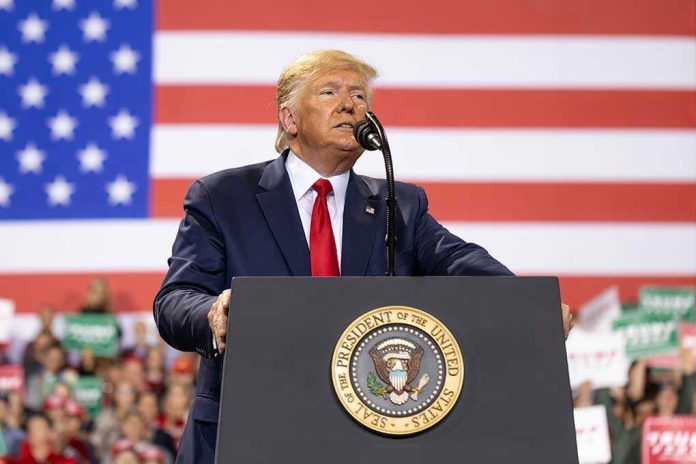
Jeffrey Epstein’s alleged offer to provide the Kremlin with insight into President Trump ahead of the 2018 Helsinki summit raises new questions about foreign influence and political integrity.
Story Overview
- Epstein claimed to offer information on Trump to Russian officials, raising concerns about motives.
- Over 20,000 Epstein emails released by Congress, fueling renewed scrutiny.
- The 2018 Helsinki summit was a controversial moment in US-Russia relations.
- White House denies any wrongdoing by President Trump.
Epstein’s Offer to Russia: A Controversial Claim
In June 2018, Jeffrey Epstein reached out to Thorbjorn Jagland, then Secretary General of the Council of Europe, offering to provide valuable insight into President Donald Trump for the Kremlin.
Epstein’s emails suggested that Jagland could relay a message to Russian Foreign Minister Sergey Lavrov, highlighting the late Russian UN ambassador Vitaly Churkin as someone who had previously understood Trump after their conversations.
This communication was part of over 20,000 emails released by congressional investigators.
The controversial Helsinki summit between Trump and Putin took place in July 2018, where Trump publicly contradicted US intelligence agencies on Russian election interference.
Epstein’s emails, released in November 2025, have reignited scrutiny over the intersections of power, influence, and scandal involving Epstein, Trump, and Russia.
This release has prompted a fresh wave of analysis and political debate, with many questioning the motivations behind Epstein’s outreach.
Political Reactions and Denials
The White House, through press secretary Karoline Leavitt, was quick to respond to the release of these emails, stating that they “prove absolutely nothing other than President Trump did nothing wrong.”
House Republicans criticized Democrats for allegedly “cherry-picking” documents to smear Trump, further intensifying the partisan divide in Congress. These emails have become a focal point for ongoing investigations, with both parties crafting competing narratives about their significance.
Despite the accusations and counter-accusations, President Trump and his representatives have consistently denied any wrongdoing or improper relationship with Epstein.
Legal experts have noted that while the emails are suggestive, they do not constitute evidence of criminal conduct by Trump. The broader implications for US-Russia relations and the integrity of political institutions, however, remain a significant concern.
Implications and Future Developments
The release of Epstein’s emails and the subsequent political fallout could have long-term implications for public perceptions of Trump, Epstein, and US-Russia relations.
The increased scrutiny on elite networks and foreign influence may impact upcoming elections and policy debates, emphasizing the need for transparency and oversight. As the story continues to unfold, the potential for further investigations or hearings looms large, keeping this issue in the public eye.
As the saga develops, it is essential to maintain a focus on factual information and credible sources.
The ongoing investigations by congressional investigators will play a crucial role in shaping the narrative and determining the extent of Epstein’s influence, if any, on US-Russia relations during Trump’s presidency.














